The views expressed in our content reflect individual perspectives and do not represent the authoritative views of the Baha'i Faith.
In the October 12, 1952 issue of Ebony magazine, a feature article appeared titled, “Baha’i Faith, Only Church in World That Does Not Discriminate.”
At that time, Ebony magazine enjoyed a huge share of the African-American media market across the United States, and wielded considerable influence on popular Black opinion.
Displayed prominently on page 39 was a photograph of the Baha’i intellectual and Harlem Renaissance hero, Alain Locke, featured in a number of articles in this series. Next to the picture of Alain Locke is a photograph of Robert S. Abbott, founder of The Chicago Defender, which, prior to World War I, emerged as the nation’s most influential Black weekly newspaper. Abbott’s original motto for the Defender (self-styled as the “World’s Greatest Weekly”) was “American race prejudice must be destroyed.”
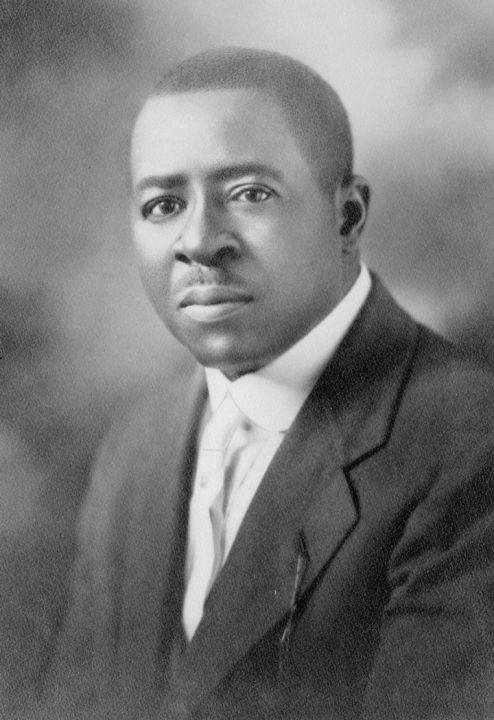
The Defender had one animating impulse as the hallmark of its outspoken journalism – a strident and trenchant criticism of racism, bigotry, and discrimination against African Americans, quite similar to the Baha’i teachings on the issue, expressed here by Abdu’l-Baha in a talk he gave in Montreal in 1912:
All prejudices are against the will and plan of God. Consider, for instance, racial distinction and enmity. All humanity are the children of God; they belong to the same family, to the same original race. There can be no multiplicity of races, since all are the descendants of Adam. This signifies that racial assumption and distinction are nothing but superstition. …
Therefore, all prejudices between man and man are falsehoods and violations of the will of God. God desires unity and love; He commands harmony and fellowship.
The Chicago Defender’s founder, Robert Sengstacke Abbott (1868–1940) – LL.M., Legum Magister, meaning master of laws in Latin, an internationally recognized post-Juris Doctor (JD) law degree – was one of the greatest newspaper publishers of all time.
The acclaimed sociologist Gunnar Myrdal (awarded The Sveriges Riksbank Prize in Economic Sciences in Memory of Alfred Nobel in 1974), in his magisterial work An American Dilemma: The Negro Problem and Modern Democracy – cited in the 1954 U.S. Supreme Court’s landmark decision, Brown v. Board of Education of Topeka, Kansas – proclaimed that the Black press was “‘the greatest single power in the Negro race’”.
Abbott’s motto, “With drops of ink, we make millions think,” frequently appeared in The Chicago Defender. In fact, he had the power to influence and therefore change the entire United States of America, which he did by launching and catalyzing what is known as the “Great Migration,” when more than six million African Americans moved from the rural South to the cities of the North, Midwest and West from around 1916 to 1970. Mr. Abbott became a Baha’i in 1934, thereby publicizing an otherwise little-known social movement at the time into something that would become better known thanks to the many articles on the Baha’i Faith that The Chicago Defender would publish during Abbott’s illustrious and distinguished career.
Since the 1912 visit of Abdu’l-Baha to the United States, the Black media mogul had been a long-time admirer and friend of the Baha’i Faith. (Mark Perry effectively rediscovered Robert S. Abbott’s compelling Baha’i story, including information published in this article).
In 1912, the year the Defender’s first newsstand sales began, Abbott attended Abdu’l-Baha’s first of three visits to Chicago, in a meeting held at Jane Addams’s Hull House. As Abbott recalled years later, Abdu’l-Baha placed his hand on Abbott’s head and said that “he would get from me some day a service for the benefit of humanity.” Perry notes that, as early as 1924, Abbott and his wife, Helen, appeared in the Chicago Baha’i community membership list. Abbott read and studied a number of Baha’i books prior to becoming a Baha’i during the 26th annual National Baha’i Convention of 1934, held in Foundation Hall at the Baha’i House of Worship in Wilmette, Illinois.
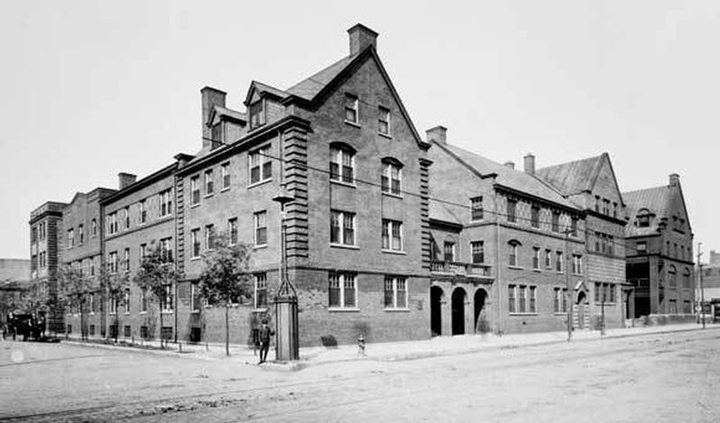
One news story, published in March 1924 in The Chicago Defender, reported that Robert S. Abbott presented a lecture, “Friendly Race Relations,” to students and faculty at Northwestern University in Evanston, Illinois, under the auspices of the “Race Friendship League.” In describing the gist of the lecture, the Defender reporter wrote:
Students of Northwestern University, Evanston, gathered recently at Garrott Hall, under the auspices of the Race Friendship League, a body of professors and students intensely interested in race relations. The speaker of the evening was Robert S. Abbott of the Chicago Defender. …
Dr. Abbott, as the guest at the meeting, chose as his topic, “Friendly Race Relations.” By way of introduction, attention was directed to the great Bahai movement that is attempting, through religious forces of the present day, to bring about the hoped-for fatherhood of God and brotherhood of man. …
“I feel,” said Dr. Abbott, “that America will never take its place alongside the nations in the world until she makes up her mind that the black man and the black woman, the black boy and the black girl are sharing and sharing alike with the whites of this country in everything that makes for peace, happiness and contentment. I feel that no church has done its full duty to God and man until its doors are thrown open to all, regardless of race or color. When all races come together and serve God under one vine and fig tree, and not until then, will the blessings of God come to this nation of ours.” – “Northwestern Students Hear Editor Abbott,” The Chicago Defender (National edition) March 22, 1924, p. 4.
Little is known about Abbott’s relationship with the Baha’i community in the intervening years prior to his declaration of faith in 1934. Yet, as noted and quoted above, it is noteworthy that Dr. Abbott publicly promoted the ideals of the Baha’i Faith a full decade before his public declaration of his faith as a Baha’i.
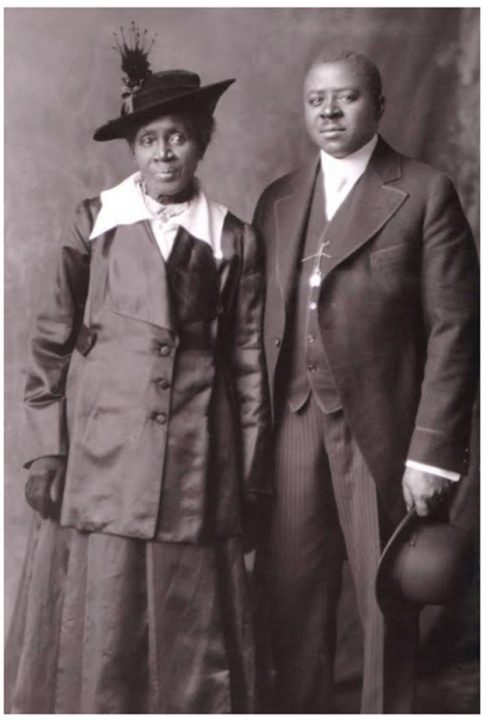
Dr. Zia Bagdadi, perhaps the most active and prominent promoter of the Baha’i Faith among Chicago’s African Americans, had served as one of Abdu’l-Baha’s attendants in 1912. Perry notes that “it is quite likely that Dr. Bagdadi first met Abbott at the Hull House talk and was present when Abdu’l-Baha spoke to the fledgling publisher.” After Abbott became a Baha’i, Shoghi Effendi (Abdu’l-Baha’s grandson and appointed successor) wrote to Dr. Bagdadi, stating that Abbott “may truly be regarded as your spiritual son,” which shows that friendship with Dr. Bagdadi was Abbott’s primary connection with the Baha’i community before his conversion. (See Perry, “Robert S. Abbott and the Chicago Defender,” New Pittsburgh Courier (Nov. 11, 1995), p. 7.)
RELATED: African American Baha’is During Abdu’l-Baha’s Lifetime
Abbott’s declaration of faith as a Baha’i occurred on Sunday, June 3, 1934, the final day of the 1934 National Baha’i Convention, held in “Foundation Hall” at the Baha’i House of Worship in Wilmette, Illinois. Dr. Bagdadi and the convention delegates witnessed and described a “touching and impressive incident,” which he recounted a few days later in a letter to Shoghi Effendi:
Just before the closing of this Convention, speaking on the subject of publicity, I happened to think of Doctor Abbot [sic], Negro publisher of a newspaper in Chicago. I mentioned how I succeeded in publishing Baha’i articles on the first page of his paper. As I finished this statement, someone in the audience shouted, “Dr. Abbot [sic] is now here with us.” The Delegates expressed their desires to hear a word from him, and he responded by declaring his faith in the Baha’i Cause! This was one of the happiest moments in the Convention. – Ibid.
On June 9, 1934, The Chicago Defender itself reported on the 1934 American Baha’i national convention, stating, in part:
Robert S. Abbott, editor and publisher of The Chicago Defender, addressed the delegates and visitors to the convention Sunday afternoon. His talk was one of the highlights of the program. The editor is intensely interested in the Baha’i movement, and is thoroughly in accord with its broad principles as was evidenced by his excellent remarks during the convention. – “Baha’i Delegates End 26th Annual Convention: Followers of Faith Gather at Temple in Wilmette.” The Chicago Defender (June 9, 1934), 4.
As recounted by Louis Gregory, this is what Dr. Abbott said:
Dear friends: Sorry I am hoarse and do not want to find it necessary to speak all over again. Happy am I to see people whom I have been praying to God all my life to see, those who recognize me as a man. Everywhere I have travelled I have been received as a man save in my own country. Here my people have been cruelly treated and even burned at the stake! … Abdu’l-Baha when in America put His hand on my head and told me that He would get from me some day a service for the benefit of Humanity. I am identifying myself with this Cause and I go up with you or down with you. Anything for this Cause! Let it go out and remove the darkness everywhere. Save my people! Save America from herself! – Perry, “Robert S. Abbott and the Chicago Defender,” New Pittsburgh Courier (Nov. 11, 1995), p. 7.
Abbott’s interest the Baha’i religion was no mere passing fancy; rather, his passion and fervent enthusiasm were translated into a significant number of articles on the Baha’i movement that Dr. Abbott published (and sometimes personally authored) in The Chicago Defender, which reached a remarkably wide readership within the Black community across the United States.
Note: This two-part essay originated in this previously-published journal article by the author: “The Baha’i ‘Race Amity’ Movement and the Black Intelligentsia in Jim Crow America: Alain Locke and Robert S. Abbott.” Baha’i Studies Review 17 (cover date, 2011; publication date, 2012): pp. 3–46, available online: https://bahai-library.com/buck_race_amity_movement.


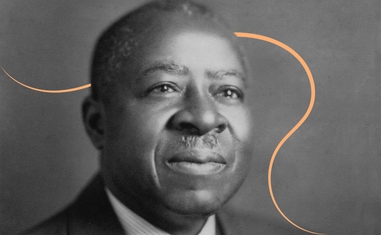




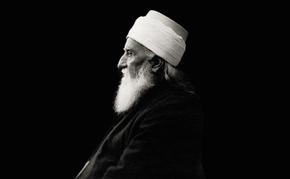









Comments
Sign in or create an account
Continue with Facebookor